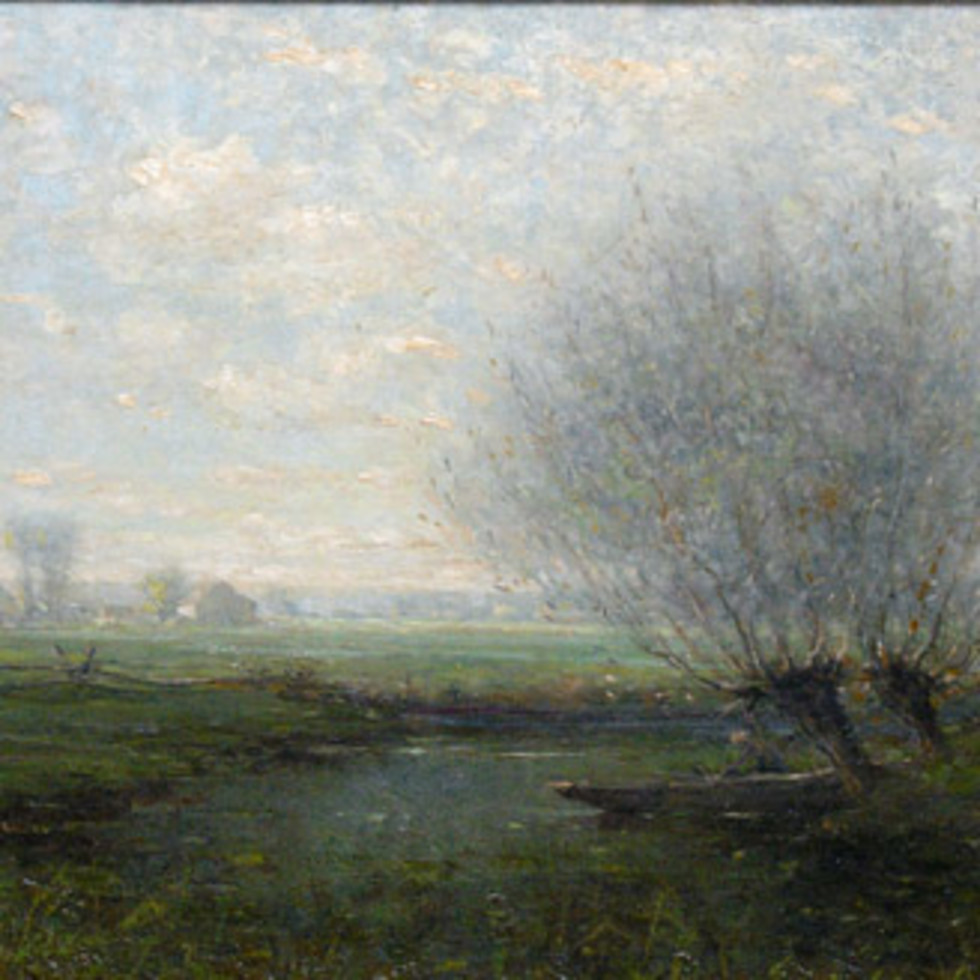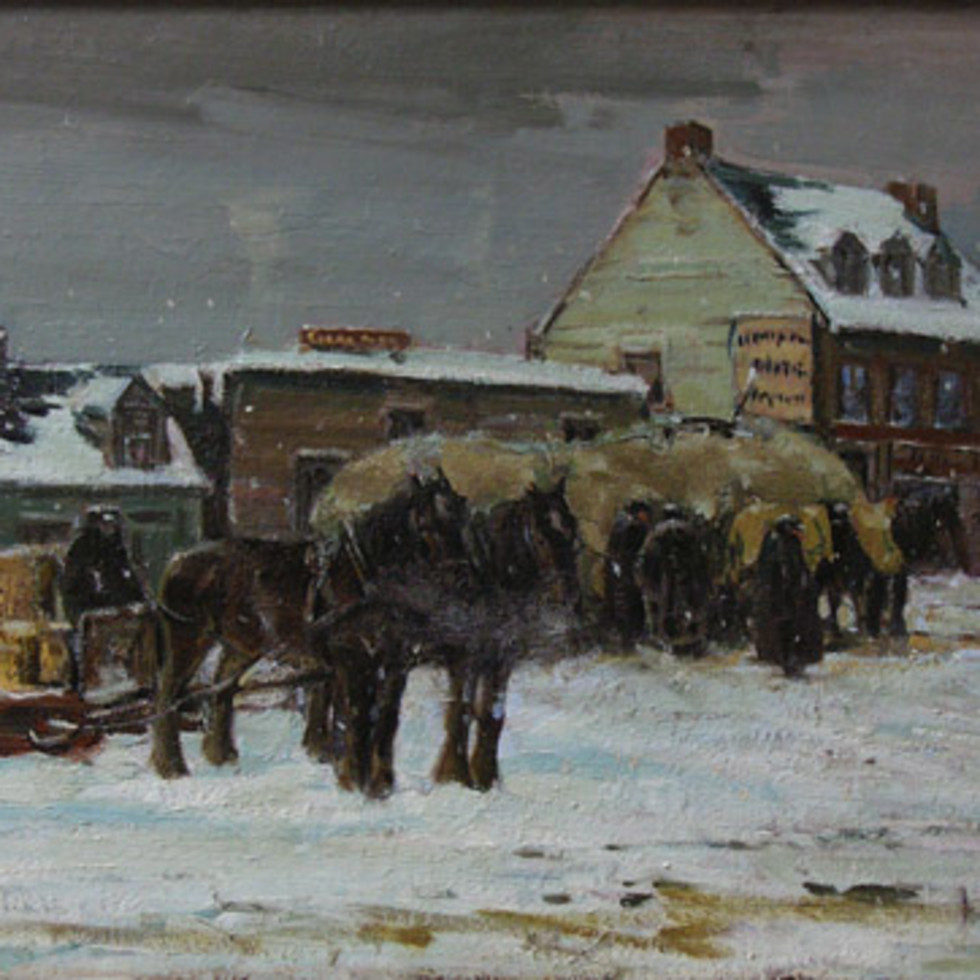Percy Woodcock
Percy Woodcock was one of the accomplished Canadian artists that Sir William Van Horne, "the greatest of all Canada’s art collectors,"(1) engaged, offering complimentary transportation and some expenses, as he "…inaugurated an unusual promotional scheme when he decided that the Canadian Pacific should scatter paintings of the Rockies throughout eastern Canada... " (2) with a view in mind to them painting the magnificent and powerful views of the Rockies where the railway was forging beyond to connect the country from east to west without interruption. Percy Woodcock also served as an art advisor to Sir William Van Horne whose Montreal mansion was located, almost across Sherbrooke Street from our gallery, where the Sofitel Hotel is presently situated.
Born in Athens, Ontario, Woodcock briefly had a studio in Montreal in 1877 before pursuing his art studies the following year in Paris at the Ecole des Beaux-Arts, where he stayed until 1887. Upon his return to Canada, he was principal of the Brockville Art School for only a couple of years and then resumed art studies in France with Sir John Lavery. According to J. Russell Harper, in his reference book Early Painters and Engravers in Canada, Woodcock then traveled extensively before settling in Montreal permanently in 1910. He notes also that Woodcock exhibited regularly with the Art Association of Montreal from 1883 to 1928, the Salon d’automne in Paris in 1881, the Paris World's Fair in both 1883 and 1927, and a regular contributor to the Royal Canadian Academy of the Arts exhibitions from 1882 to 1921. Harper briefly notes that Woodcock "chiefly painted landscapes, preferring silver-grey marshlands of rural Quebec." (3)
In 1973 when Joan Murray was Curator of Canadian Art at the Art Gallery of Ontario, she included Woodcock in her exhibition Impressionism in Canada 1895-1935. She wrote, "In contrast to other artists of his generation, such as Robert Harris and Brymner, who were not influenced by Impressionism until late in their Canadian careers, Woodcock adopted a gentle form of Impressionism soon after his return to Canada in 1894"(4). The painting to which Murray refers and which is illustrated on the following page in her catalogue is a fine canvas in the collection of the Montreal Museum of Fine Arts. Woodcock's terms of impressionism hold up especially well when compared to the summer Clarence Gagnon compositions , particularly the European scenes Gagnon painted as well as some of the equally precious Suzor-Cotés.
Endnotes
1. J. Russell Harper, Painting in Canada: a History, (Toronto: University of Toronto Press, 1981), p. 198;
2. ibid.
3. J. Russell Harper, Early Painters and Engravers in Canada, (Toronto: University of Toronto Press, 1970), p. 338
4. Joan Murray, Impressionism in Canada 1895- 1935, (Toronto: Art Gallery of Ontario, 1974), p. 144







